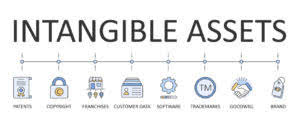
Outsourcing provides access to expertise and resources that may not be available in-house, ensuring that your financial processes How to Invoice as a Freelancer are handled with the highest level of accuracy and efficiency. Outsourcing can be a cost-effective solution that enhances the overall quality and reliability of your bookkeeping. By keeping track of patient visits, treatments given, and related costs, bookkeeping for doctors plays a crucial part in invoicing and reimbursement. It helps medical professionals in tracking unpaid claims, locating overdue balances, and comparing received payments.
Separating Business and Personal Finances
- You’ve got a trusted advisor, a 60+ person team, and a proven system backing you up.
- Instead of tackling endless spreadsheets, you can devote more energy to delivering patient care.
- When it comes to how to run a clinic successfully, practice management consulting can also be an avenue to consider.
- Watch for the next installment—Part 2—to improve your practice’s financial management.
- Each patient file you create is more than a clinical record; it’s a vault of deeply personal…
Without effective medical practice bookkeeping, spending can spiral out of control, causing cash flow problems to cripple your operations. When it comes to medical practices, it helps to employ cash accounting – something PPMC staff are well-versed in and can be relied upon to handle effectively. With cloud storage, medical practices can securely store documents and records without taking up physical space in the office. A secure internet connection provides access to files from anywhere, allowing your staff to update files in real-time. Another reason bookkeeping and accounting are important in healthcare is because the manner in which the facility is run can either positively or negatively impact patient satisfaction.
Keeping Organized Records

Moreover, utilizing professional resources and consulting with experts in medical billing can provide valuable insights and practical advice. Staying informed and educated ensures that your bookkeeping practices are always in compliance, reducing the risk of errors and improving the overall efficiency of your financial operations. In addition to understanding billing and coding intricacies, it’s crucial to be aware of the various financial metrics specific to healthcare practices. Metrics such as the average reimbursement rate, patient visit volume, and collection ratio provide vital insights into a practice’s financial health. Using these metrics effectively can help in financial forecasting and budget planning.

Federal Filing Requirements for Non Profits
Continuing education plays a significant role in staying up-to-date with the latest changes in medical accounting principles. Attending workshops, webinars, and conferences dedicated to medical bookkeeping can provide updated knowledge and hands-on experience. Moreover, seeking certifications that focus on medical bookkeeping can bolster your credibility and expertise. By staying informed and educated, you not only enhance your skillset but also ensure that your practice is always in compliance with the latest regulations and standards. In the field of medicine, having accurate documentation is not only financially responsible but also legally and morally required. To ensure transparency, accuracy, and accountability, healthcare providers must keep thorough records of patient interactions, treatments, and financial transactions.
- How often should healthcare practices review their financial statements?
- Their value declines when you use MRI machines, X-ray units, and diagnostic software.
- Proper bookkeeping factors in hourly wages, salaries, overtime, and bonuses.
- Medical practices have specific tax requirements, such as deductions for medical equipment, office rent, and staff wages.
- Adopting automation in your bookkeeping practices can significantly enhance productivity and efficiency, leading to a more streamlined financial operation.
- And if you’re starting your own medical practice, this can become a bit stressful.
- Let’s look at some central issues in healthcare bookkeeping and see how to address them.
- A typical healthcare practice employs physicians, nurses, technicians, administrative staff, and contractors.
- Cloud-based software integrates with healthcare billing systems, providing real-time snapshots of your financial health.
- Automation frees up valuable time, allowing you to focus on more strategic aspects of financial management.
While managing bookkeeping in-house is an option, many medical practices find it beneficial to seek professional bookkeeping assistance to navigate the intricacies of healthcare financial management. Accurate and compliant financial records are a cornerstone of the successful and sustainable operation of medical practices. Tebra is designed specifically for healthcare providers and is ideal for medical billing and revenue cycle management.
Organize Financial Documentation

Certifications can further improve job prospects—especially credentials like Certified Medical Reimbursement Specialist (CMRS) or Certified Bookkeeper (CB). These demonstrate your commitment to the field and validate your technical skills. Managing a medical practice entails much more than just providing exceptional patient care. To thrive, you must maintain a healthy financial system that includes precise and effective bookkeeping. Bookkeeping for medical practices is often disregarded, yet it is critical for keeping your practice profitable and in compliance with regulations. Beyond invoicing and payroll, consider automating other repetitive tasks like expense tracking and bank reconciliations.
Bookkeeping Tips for Medical Practices
Your most loyal team member may be when performing bookkeeping procedures for a medical office, it is important to unknowingly blocking your growth—and costing your practice over $50,000 a year. Discover how HIP and the Scheduling Institute help turn good intentions into high-converting systems that fuel predictable, scalable success. Running a medical facility is difficult enough without even considering the financial responsibilities involved.
The Comprehensive Guide to Medical Practice Bookkeeping
Many accounting software https://www.bookstime.com/ platforms offer features like automatic transaction matching and categorization, which streamline these processes. Automation frees up valuable time, allowing you to focus on more strategic aspects of financial management. Moreover, it ensures that routine tasks are completed reliably and efficiently, minimizing the risk of human error and improving overall financial accuracy.
